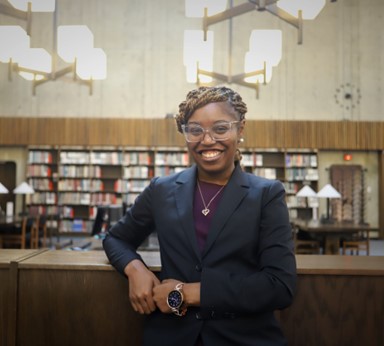
Valerie Boyer is a woman of many callings. She is a vocalist, musician, dancer, poet, activist, minister, historian, and most of all an educator. In every space, she breathes knowledge. Born and raised in Galveston, TX, Valerie Boyer was groomed in southern hospitality and shares that kindness everywhere she goes.
Her life’s work reflects the southern colloquialisms of her childhood and the tenacity of her adulthood. As a member of the National Forensics League, 2012 Miss Juneteenth Ambassador, Black Historian of the Year in 2019 UpStart Magazine, Valerie been able to travel the country, and has been featured at venues such as Ohio History Center, Nandi’s Knowledge Cafe, Columbus Color of Summer, Wednesday Night Live Howard University, Westerville Historical Society, Columbus City Schools GearUp initiative, Ohio Black Collective at Walsh University, NinaImani at Youngstown State university, SOBO at Ohio Black Expo, just to name a few.
Valerie is an active member of Ohio Black Expo, and Advocates of Diversity for the state of Ohio. Valerie has taught Social Studies for years, and is currently the School and Inclusive Community Programs Coordinator at Ohio History Connection. Valerie Boyer is a proud graduate of Howard University, and resides in Columbus, Ohio.
Speaker Applications
The Ohio Humanities Speakers Bureau is closed for the rest of 2024 and is not currently accepting applications. Check back later in the year for information about the 2025 Bureau!
Interested organizations can still book talks from our United We Stand Speakers Bureau.
Speaker Fee Structure
Non-profit organizations with an annual budget under $150,000 pay a fee of $50.00.
Non-profit organizations with an annual budget over $150,000 pay a fee of $250.00.
Schools (including colleges or universities) and corporate or private entities pay a fee of $400.00.
For any questions, please contact Program Officer Melvin Barnes at mbarnes@ohiohumanities.org.
Underground Railroad in Ohio
Do we really know the story of Underground Railroad? This talk discusses the food, the clothes, the Ohio Black codes, the technicalities around “freedom”, and the length of the journey—in all its complexity. The nuance of some of these things is often not taken into consideration when telling this story of heroes. The practices created to navigate this railroad of sorts are cultural customs and norms. This talk will illuminate how we still carry many of them with us today.
Coded Language of Negro Spirituals during the Underground Railroad
Negro Spirituals, which have since been renamed African American Spirituals, have been sung by enslaved people and their descendants since as early as the 18th century, and are still sung today. This talk covers what makes them such a brilliant form of resistance by discussing the hidden messages coded within them. When someone who didn’t need to know, such as an overseer or master, heard these songs, the assumption was often that they sang about heaven, scripture, or biblical reference in folklore. They had no clue that these freedom seekers were singing songs of liberation, escape routes, planned resistance, and so much more.
TO SCHEDULE A PRESENTATION , PLEASE CONTACT:
Valerie Boyer
vboyer@ohiohistory.org
